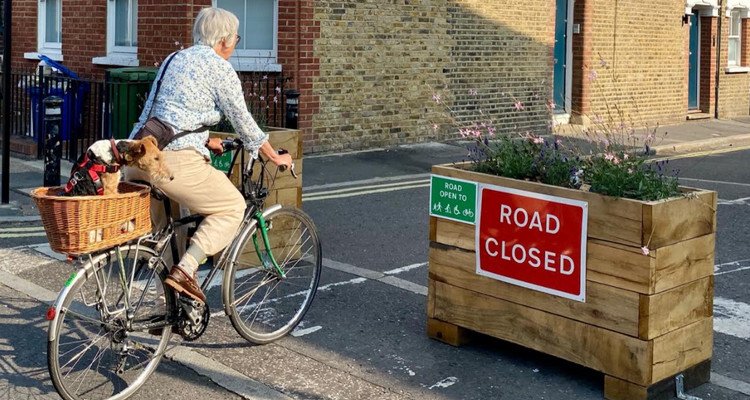We’re excited to share a first post from our new Behavioural Scientist, Isobel Madle. From helping residents manage rising energy costs to applying her behavioural science insights to the issue of fly-tipping, it’s been a busy but rewarding start to life at DG Cities…
Image: BrixtonBuzz
I began working as a Behavioural Scientist at DG Cities on the 1st of December 2021. I was looking for a role that would allow me to use my Masters to develop and implement behaviour change interventions and to work in an area that I’m passionate about. Despite this being a tall ask, DG Cities managed to fit the bill!
My academic background is in psychology. I originally undertook my undergraduate degree expecting to become a therapist, but once I discovered how behavioural science could make a positive impact on the lives of more people, at a population scale, I realised that this was the career path for me. After university, I spent three years working in the research and innovation arm of a communications agency growing my experience with various research methods, such as using AI and psychometric profiling to understand human motivations.
The pandemic gave me a chance to evaluate how I wanted my career to grow, so I began a Masters in Behaviour Change at UCL in 2020 whilst continuing my role in communications. I took modules in systems dynamics, where I developed a model to show how complex city systems influences levels of childhood obesity; and environmental policy, where I wrote a paper about how the controversial Low Traffic Neighbourhood (LTNs) policy – which was making news headlines at the time – could be improved using insights from psychology and sociology. This newfound interest in cities and policy and a desire to be a behavioural scientist is what ultimately led me to work at DG Cities.
My first month at DG Cities has been extremely varied and a month of firsts. My first project is to work with Greenwich Council to reduce residential and commercial fly-tipping in council estates around the borough. I’ve been conducting research, designing communications materials and driving around the borough with council operatives to measure the number of fly-tipping incidents. I’m also working with the UK Government to develop surveys about electric vehicles – another first for me!
On a personal level, I completed my first escape room at the Christmas party and played my first game of ‘bad santa’, which I came out of pretty well, winning a huge cheese board just in time for Christmas!
At DG Cities, we’re about to begin a new project which I’m really proud to be a part of. We will be deploying a behaviour change project with Greenwich Council to deploy IoT technology and smart meters in council tenants’ homes to help them manage their electricity bills and reduce their carbon footprint. With the cost-of-living crisis fast approaching, I’m hopeful this will be of real help to the people who need it most.
I’m very excited to work with DG Cities to help grow the behavioural science arm of the business. We’re constantly looking for exciting partners and opportunities to innovate and run behaviour change projects that create lasting positive change. We are bridge builders, both between the public and private sector, and between technology and behaviour. If you’re as passionate as I am about helping communities to be more sustainable and to use technology for good, it’d be great to connect!


